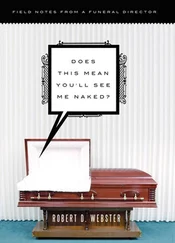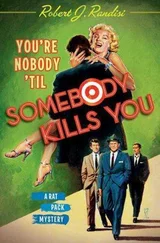Robert Sawyer - You See But You Do Not Observe
Здесь есть возможность читать онлайн «Robert Sawyer - You See But You Do Not Observe» весь текст электронной книги совершенно бесплатно (целиком полную версию без сокращений). В некоторых случаях можно слушать аудио, скачать через торрент в формате fb2 и присутствует краткое содержание. Год выпуска: 1995, ISBN: 1995, Издательство: DAW, Жанр: Космическая фантастика, на английском языке. Описание произведения, (предисловие) а так же отзывы посетителей доступны на портале библиотеки ЛибКат.
- Название:You See But You Do Not Observe
- Автор:
- Издательство:DAW
- Жанр:
- Год:1995
- ISBN:0886776368
- Рейтинг книги:3 / 5. Голосов: 1
-
Избранное:Добавить в избранное
- Отзывы:
-
Ваша оценка:
- 60
- 1
- 2
- 3
- 4
- 5
You See But You Do Not Observe: краткое содержание, описание и аннотация
Предлагаем к чтению аннотацию, описание, краткое содержание или предисловие (зависит от того, что написал сам автор книги «You See But You Do Not Observe»). Если вы не нашли необходимую информацию о книге — напишите в комментариях, мы постараемся отыскать её.
Winner of both the CompuServe Science Fiction and Fantasy Forum’s Sixth Annual HOMer Award for Best Short Story of the Year and Le Grand Prix de l’Imaginaire, France’s top SF award, for Best Foreign Short Story of the Year.
You See But You Do Not Observe — читать онлайн бесплатно полную книгу (весь текст) целиком
Ниже представлен текст книги, разбитый по страницам. Система сохранения места последней прочитанной страницы, позволяет с удобством читать онлайн бесплатно книгу «You See But You Do Not Observe», без необходимости каждый раз заново искать на чём Вы остановились. Поставьте закладку, и сможете в любой момент перейти на страницу, на которой закончили чтение.
Интервал:
Закладка:
“Well,” I said, “since you bring it up, I was slightly hurt by that. But you explained your reasons to me when you returned.”
“It is a comfort to me, Watson, that your ill-feelings were assuaged. But I wonder, perchance, if it was more you than I who assuaged them.”
“Eh?”
“You had seen clear evidence of my death, and had faithfully if floridly recorded the same in the chronicle you so appropriately dubbed `The Final Problem.’”
“Yes, indeed. Those were the hardest words I had ever written.”
“And what was the reaction of your readers once this account was published in the Strand ?”
I shook my head, recalling. “It was completely unexpected,” said I. “I had anticipated a few polite notes from strangers mourning your passing, since the stories of your exploits had been so warmly received in the past. But what I got instead was mostly anger and outrage — people demanding to hear further adventures of yours.”
“Which of course you believed to be impossible, seeing as how I was dead.”
“Exactly. The whole thing left a rather bad taste, I must say. Seemed very peculiar behavior.”
“But doubtless it died down quickly,” said Holmes.
“You know full well it did not. I have told you before that the onslaught of letters, as well as personal exhortations wherever I would travel, continued unabated for years. In fact, I was virtually at the point of going back and writing up one of your lesser cases I had previously ignored as being of no general interest simply to get the demands to cease, when, much to my surprise and delight—”
“Much to your surprise and delight, after an absence of three years less a month, I turned up in your consulting rooms, disguised, if I recall correctly, as a shabby book collector. And soon you had fresh adventures to chronicle, beginning with that case of the infamous Colonel Sebastian Moran and his victim, the Honorable Ronald Adair.”
“Yes,” said I. “Wondrous it was.”
“But Watson, let us consider the facts surrounding my apparent death at the falls of Reichenbach on May 4th, 1891. You, the observer on the scene, saw the evidence, and, as you wrote in `The Final Problem,’ many experts scoured the lip of the falls and came to precisely the same conclusion you had — that Moriarty and I had plunged to our deaths.”
“But that conclusion turned out to be wrong.”
Holmes beamed intently. “No, my Good Watson, it turned out to be unacceptable — unacceptable to your faithful readers. And that is where all the problems stem from. Remember Schrödinger’s cat in the sealed box? Moriarty and I at the falls present a very similar scenario: he and I went down the path into the cul-de-sac, our footprints leaving impressions in the soft earth. There were only two possible outcomes at that point: either I would exit alive, or I would not. There was no way out, except to take that same path back away from the falls. Until someone came and looked to see whether I had re-emerged from the path, the outcome was unresolved. I was both alive and dead — a collection of possibilities. But when you arrived, those possibilities had to collapse into a single reality. You saw that there were no footprints returning from the falls — meaning that Moriarty and I had struggled until at last we had both plunged over the edge into the icy torrent. It was your act of seeing the results that forced the possibilities to be resolved. In a very real sense, my good, dear friend, you killed me.”
My heart was pounding in my chest. “I tell you, Holmes, nothing would have made me more happy than to have seen you alive!”
“I do not doubt that, Watson — but you had to see one thing or the other. You could not see both. And, having seen what you saw, you reported your findings: first to the Swiss police, and then to the reporter for the Journal de Geneve, and lastly in your full account in the pages of the Strand.”
I nodded.
“But here is the part that was not considered by Schrödinger when he devised the thought experiment of the cat in the box. Suppose you open the box and find the cat dead, and later you tell your neighbor about the dead cat — and your neighbor refuses to believe you when you say that the cat is dead. What happens if you go and look in the box a second time?”
“Well, the cat is surely still dead.”
“Perhaps. But what if thousands — nay, millions! — refuse to believe the account of the original observer? What if they deny the evidence? What then, Watson?”
“I — I do not know.”
“Through the sheer stubbornness of their will, they reshape reality, Watson! Truth is replaced with fiction! They will the cat back to life. More than that, they attempt to believe that the cat never died in the first place!”
“And so?”
“And so the world, which should have one concrete reality, is rendered unresolved, uncertain, adrift. As the first observer on the scene at Reichenbach, your interpretation should take precedence. But the stubbornness of the human race is legendary, Watson, and through that sheer cussedness, that refusal to believe what they have been plainly told, the world gets plunged back into being a wavefront of unresolved possibilities. We exist in flux — to this day, the whole world exists in flux — because of the conflict between the observation you really made at Reichenbach, and the observation the world wishes you had made.”
“But this is all too fantastic, Holmes!”
“Eliminate the impossible, Watson, and whatever remains, however improbable, must be the truth. Which brings me now to the question we were engaged by this avatar of Mycroft to solve: this paradox of Fermi. Where are the alien beings?”
“And you say you have solved that?”
“Indeed I have. Consider the method by which mankind has been searching for these aliens.”
“By wireless, I gather — trying to overhear their chatter on the ether.”
“Precisely! And when did I return from the dead, Watson?”
“April of 1894.”
“And when did that gifted Italian, Guglielmo Marconi, invent the wireless?”
“I have no idea.”
“In eighteen hundred and ninety-five, my good Watson. The following year! In all the time that mankind has used radio, our entire world has been an unresolved quandary! An uncollapsed wavefront of possibilities!”
“Meaning?”
“Meaning the aliens are there, Watson — it is not they who are missing, it is us! Our world is out of synch with the rest of the universe. Through our failure to accept the unpleasant truth, we have rendered ourselves potential rather than actual.”
I had always thought my companion a man with a generous regard for his own stature, but surely this was too much. “You are suggesting, Holmes, that the current unresolved state of the world hinges on the fate of you yourself?”
“Indeed! Your readers would not allow me to fall to my death, even if it meant attaining the very thing I desired most, namely the elimination of Moriarty. In this mad world, the observer has lost control of his observations! If there is one thing my life stood for — my life prior to that ridiculous resurrection of me you recounted in your chronicle of `The Empty House’ — it was reason! Logic! A devotion to observable fact! But humanity has abjured that. This whole world is out of whack, Watson — so out of whack that we are cut off from the civilizations that exist elsewhere. You tell me you were festooned with demands for my return, but if people had really understood me, understood what my life represented, they would have known that the only real tribute to me possible would have been to accept the facts! The only real answer would have been to leave me dead!”
Mycroft sent us back in time, but rather than returning us to 1899, whence he had plucked us, at Holmes’s request he put us back eight years earlier in May of 1891. Of course, there were younger versions of ourselves already living then, but Mycroft swapped us for them, bringing the young ones to the future, where they could live out the rest of their lives in simulated scenarios taken from Holmes’s and my minds. Granted, we were each eight years older than we had been when we had fled Moriarty the first time, but no one in Switzerland knew us and so the aging of our faces went unnoticed.
Читать дальшеИнтервал:
Закладка:
Похожие книги на «You See But You Do Not Observe»
Представляем Вашему вниманию похожие книги на «You See But You Do Not Observe» списком для выбора. Мы отобрали схожую по названию и смыслу литературу в надежде предоставить читателям больше вариантов отыскать новые, интересные, ещё непрочитанные произведения.
Обсуждение, отзывы о книге «You See But You Do Not Observe» и просто собственные мнения читателей. Оставьте ваши комментарии, напишите, что Вы думаете о произведении, его смысле или главных героях. Укажите что конкретно понравилось, а что нет, и почему Вы так считаете.











